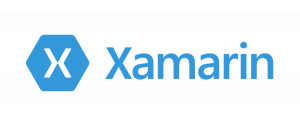
While the digital era is speeding up every day, businesses are looking forward to getting into the race through mobile app development. And once you aim for this, choosing a platform is an inevitable dilemma. But, what if you can get both with almost the same investments? Well, cross-platform app development does exactly that for you. Multiple platforms can help you get a fantastic mobile app seamlessly functioning across the devices. Let’s evaluate two of the popular ones on various parameters and identify what works best for you.
An Overview of React Native Framework
React Native is a popular JavaScript library that enables real, natively rendering mobile apps for iOS and Android. Facebook launched the framework in the year 2015 as one of the strongest competitors to Xamarin. Empowering web developers to write mobile apps that look and feel native, all without any need for additional learning. React Native has enabled some of the great applications including brands like Airbnb, Facebook Ads Manager, UberEats, Bloomberg mobile apps, and many more.
Some of the striking features of React Native include:
- The most significant benefit of React Native is that it uses JavaScript. iOS, as well as Android, supports this particular programming language.
- Thus,
- code written in React Native serves as a common base for iOS and Android. This helps the clients to save on the development cost and time to a great extent.
- React Native has been continuously improving since its launch. This has dramatically provided it with the stability required for flawless development with new UI components and features.
How React Native Revolutionized Mobile App Development?
![]()
React Native is a robust cross-platform app development framework that supports iOS and Android cost-effectively. It enables developers to use declarative self-contained UI components. It accelerates the development cycles without compromising on app’s performance. Giving new way to develop apps, it has dramatically revolutionized the mobile app development.
The fact that React Native renders using the host platform’s standard rendering API makes it overshadow other cross-platform app development frameworks like Cordova and Ionic. Mobile app development currently makes use of JavaScript, HTML, and CSS to render the webviews. This approach has considerable effects on the app’s performance. To add to it, they are not capable of accessing the host’s platform’s native elements directly.
On the other hand, React Native is capable of translating the markup to real, native UI elements, leveraging host’s resources to render the views. It also facilitates easier update cycles. Whenever props or state changes, React Native re-renders the views. Other benefits offered by React Native are as follows:
Multi-Platform Support
Determining the platform for an app is one of the most bothersome questions for the developers. While countries like Western Europe and North America majorly favor iOS, others give preference to the Android. React Native allows you to code for both of them at the same time using a single codebase. Besides, it does all this without you having to compromise with the excellent user experience.
Try with Web Apps
The potential of React Native can be best tested with web apps. Everything that works on Desktop may or may not work flawlessly on smartphones. Moreover, porting is also not easy. But with React Native, you can reuse the code from web apps to render the same views on smartphones. This makes the task easier, specifically if you want to migrate a particular web app to mobile.
Modular and Intuitive Design
Another benefit offered by React Native is in terms of modular and intuitive user interface. This allows the developers to build on the existing projects easily, or create and update the web apps. Furthermore, it also enables the developers to understand the programming logic in considerably lesser time. Testers can benefit from it by gaining the ability to understand the logic in less time and design successful test cases. The combined effect of all these benefits is clearly visible on the development time, specifically if the platform is migrated from web platform to the mobile counterpart.
An Overview of Xamarin Framework
 Xamarin offers the developers with tools that foster great cross-platform app development. It boasts of being a reliable tool for more than 15000 companies worldwide. This also includes brands like The World Bank, Olo, and Storyo. It significantly reduces the learning curve by allowing developers to code in C#. Besides being a great platform to develop iOS and Android applications, it also dramatically supports app development for wearable devices including Android Wear and Apple Watch. Apps built using Xamarin facilitate standard, native user interface controls. It allows you to make use of the comprehensive range of underlying platform’s functionality.
Xamarin offers the developers with tools that foster great cross-platform app development. It boasts of being a reliable tool for more than 15000 companies worldwide. This also includes brands like The World Bank, Olo, and Storyo. It significantly reduces the learning curve by allowing developers to code in C#. Besides being a great platform to develop iOS and Android applications, it also dramatically supports app development for wearable devices including Android Wear and Apple Watch. Apps built using Xamarin facilitate standard, native user interface controls. It allows you to make use of the comprehensive range of underlying platform’s functionality.
Mainstays of Xamarin include:
- Xamarin applications use C# that offers a wide array of benefits over Objective -C and Java.
- It facilitates direct integration with Objective-C, Java, and C++, enabling reuse of third-party code base.
- Xamarin supports significant platforms including Android, iOS, and Windows, by making more than 90% of the code base sharable.
- It provides robust compile-time checking leading to lesser runtime errors and high-end quality.
How Xamarin Impacts Mobile App Development?
Xamarin is one of the most comprehensive cross-platform app development frameworks. It provides the best of both worlds, that is, native user experience and code reusability across platforms. Here are some of the ways that explain how Xamarin has affected mobile app development phenomenally.
1: Single Technology Stack
Xamarin uses C# and .NET framework for creating apps irrespective of the target platform. This allows the developers to reuse more than 95% of the code. Besides, it gives them the freedom to switch between development environment.
2: Code Sharing Across Multiple Platforms
Developers should ace in multiple languages including Java, Objective C, Swift, etc. for native mobile app development. The code written for the native apps is custom-made for a single platform and cannot deliver performance on the other one. On the other hand, Xamarin is a cross-platform app development framework that uses C# to build logic for input validation, database interactions, web service calls, database interaction, backend integration, etc.
3: Faster Development Cycles
Being platform dependent, native mobile apps require a separate set of code for each platform. This has considerable effects on the development time. On the other hand, Xamarin uses the same code to function across all the platforms, which accelerates the development time.
To add to it, Xamarin developers use Xamarin.forms. This permits the developers to create a view and then share it to render across various platforms, thus augmenting development speed.
4: Phenomenal UI Capabilities
Xamarin offers specialized UI and UX design tools as UI design environments for Xamarin Studio and Visual Studio. These platform-specific UI elements allow the developers to empower their applications with the seamless user experience.
5: No Hardware Compatibility Issues
Xamarin helps you eliminate the hardware compatibility issues by offering an extensive range of plugins and specific APIs. This not only helps with the easier implementation of complex functionalities but also takes care of the user’s ease. Moreover, Xamarin can easily link with the native-level feature.
6: PCL Libraries
Xamarin makes the overall development a smoother experience. Being capable of supporting all the libraries, Xamarin makes it easier for developers by making code target simple.
7: Low Maintenance Cost
The efforts required to maintain the code on multiple platforms is obviously lesser as compared to the necessary efforts to maintain code on a single platform. With Xamarin, you need not write code numerous times. Hence, the efforts to maintain the code like debugging, logic updation, etc. reduce significantly.
React Native vs. Xamarin: The Comparison
Now that we are clear with the benefits of both the cross-platform app development platforms, here is how they prove themselves on various parameters.
1: Market Penetration
React Native: The popularity of React Native is growing each day. It is being widely adopted by the Fortune 500 brands as well as startups. Some of the names include Guardian, Lazada, Frontline Recruitment Group, Science Direct, Tesla, Facebook, Skype, and Walmart.
Xamarin: As mentioned above, Xamarin is trusted by more than 15000 companies across the globe. Not only does it allow cross-platform app development process, but also supports code reuse, debugging and testing extensively.
Winner: Tie
2: Code Compilation:
React Native: React Native supports just-in-time compilation that compiles bytecode or source code into native code at runtime. However, this is not possible for the iOS apps. This makes one go for Android Apps as they do not have another choice.
Xamarin: Xamarin solves the issue faced by JIT in React Native. While it allows you to compile your Android code using JIT, it also lets you configure AOT (Ahead of Time) compilation, primarily used for iOS.
Winner: Xamarin
3: Cross-Platform App Development Environment
React Native: For React Native, you must choose an integrated development environment (IDE) for deployment. However, the loading feature does not guarantee full app reload after recoding.
Xamarin: Despite that it requires separate coding platform, it lets you code for iOS on Windows machine and later on compile it for Mac. This makes Xamarin all the more potent than React Native.
Winner: Xamarin
Documentation
React Native: React Native offers a detailed and organized set of documentation. It boasts of accurate, precise, and complete documentation in a way that everything is at a single place.
Xamarin: Xamarin needs to improve in this respect. Although both the frameworks share components, with Xamarin, they are split between NuGet and component store.
Winner: React Native
4: Accessibility and Availability
React Native: React Native is an open source framework that can be used to build apps for a wide array of devices like tabs, iOS devices, and Android platforms.
Xamarin: Xamarin’s best features are only available with its paid counterpart, that is, enterprise version. The free version, however, offers a limited set of resources making it difficult to develop enterprise-grade apps.
Winner: React Native
Framework
React Native: React Native makes use of single-way data flow as in case of React. You simply need to ace in JavaScript to win cross-platform app development using React Native.
Xamarin: Working on Model-View-ViewModel (MVVM) architecture, Xamarin is an excellent tool if you are well-versed with ASP.NET MVC, Web Forms, and other Microsoft Visual Tools.
Winner: Tie
5: Ready to Use Components
React Native: React Native offers an extensive range of components for every primary task all sorted at a single place and with clear documentation.
Xamarin: Components are divided under two names- Component Store and NuGet.
Winer: React Native
6: Performance
React Native: React Native fails to offer 64-bit support on Android. Also, it affects the iOS app’s performance before executing the fastest code. However, it provides some UI designing frameworks that use swift native widgets.
Xamarin: Xamarin does not require you to compromise on speed, be it Android or iOS. It supports 64-bit mode and renders faster UI by making use of a host platform’s native features.
Winner: Xamarin
Also Read- B2B Mobile App Development: A Complete Guide
Conclusion
Though the above discussion clearly establishes Xamarin as the winner, the selection majorly depends on the business requirements and priorities, along with the availability of the resources. Both frameworks can help you gain exceptional results as well as great cross-platform apps if used strategically.



